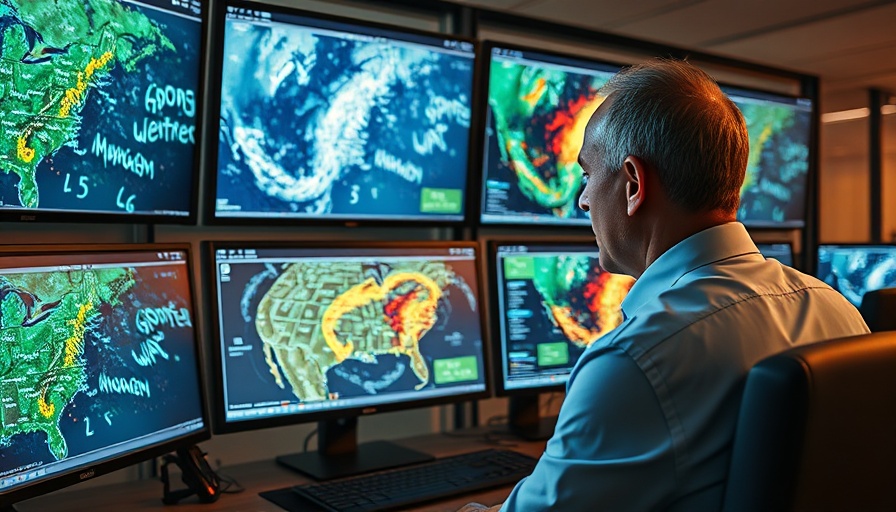
The Immediate Effects of NOAA Firings: A National Concern
Recent mass firings at the National Oceanic and Atmospheric Administration (NOAA), totaling around 800 employees, have raised alarms regarding the potential dangers to public well-being as voiced by experts and insiders. These terminologies are not mere bureaucratic dismissals but signify a significant loss of expertise that can directly affect crucial services such as weather forecasting, disaster preparedness, and climate monitoring.
How Will This Impact Weather Forecasting?
The firings primarily targeted probationary employees who had recently transitioned from contractor roles to federal positions. Many had significant experience, and their departure represents a missing puzzle piece in a larger operational picture. As the hurricane season approaches, this shortage in qualified staff could severely hinder NOAA’s ability to track and predict severe weather scenarios effectively.
According to sources, the agency is already experiencing low staffing levels that pose challenges to delivering essential weather data to the public and industries. Reductions in experienced personnel could result in less accurate forecasting, potentially endangering lives when accurate predictions are necessary.
The Hidden Costs of Weakened Climate Monitoring
The implications of these staff cuts extend beyond immediate weather forecasting. NOAA is instrumental in monitoring climate patterns and oceanic health. Cuts in staffing threaten the agency’s capacity to research vital information that informs everything from agricultural practices to coastal management. Timothy Gallaudet, a former NOAA administrator, highlighted that weakening NOAA presents national security and economic risks, as accurate climate insights are essential for planning and preparedness.
Rethinking Sustainability and Fisheries Management
Additionally, NOAA plays a crucial role in managing sustainable fisheries. Experts warn that staffing reductions may hinder this mission and disrupt the balance between supporting the seafood sector and conserving oceanic environments. Janet Coit, a former NOAA Fisheries leader, stated that diluting the agency’s capabilities raises questions about the future management of one of the world's most sustainable fisheries.
Emotional and Human Impact
Employees who faced termination expressed a palpable sense of loss, not only for their jobs but for their contribution to public safety and environmental stewardship. Many voiced that this cutback minimizes the intellectual and regulatory capacities of NOAA, potentially affecting the agency’s long-term efficacy.
Time to Act: The Importance of Supporting NOAA
The firing spree at NOAA is not an isolated event but part of broader government strategies affecting scientific bodies. The importance of continuous support for scientists and experts working at NOAA cannot be overstated, especially in light of increasing climate volatility. Stakeholders must recognize the vital role NOAA serves in safeguarding lives through informed forecasting and sustainable management practices.
As Americans, we must advocate for stronger funding and support to restore the capabilities of NOAA to ensure both current and future generations are safe during unpredictable weather events. It is time for all citizens to engage with their representatives about the importance of protecting agencies that directly affect public health and safety.
 Add Row
Add Row  Add
Add 




 Add Row
Add Row  Add
Add 



Write A Comment